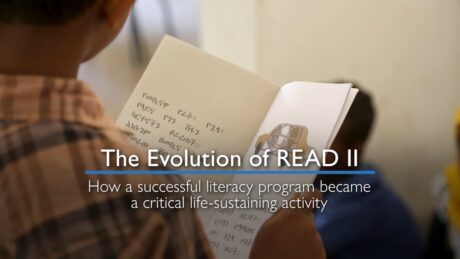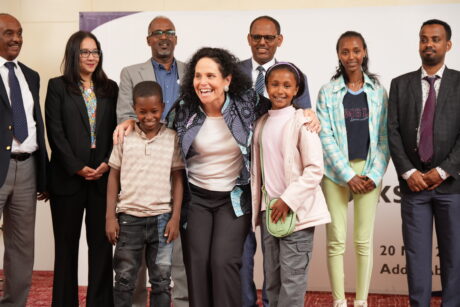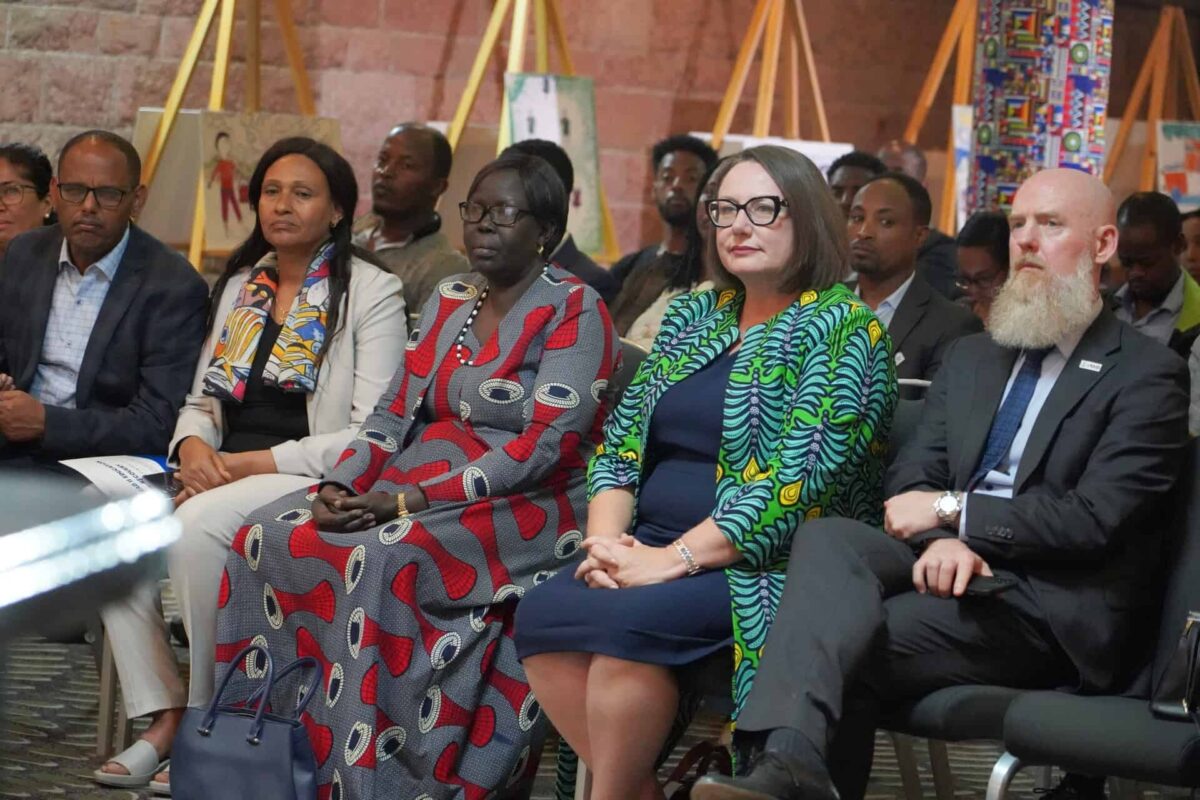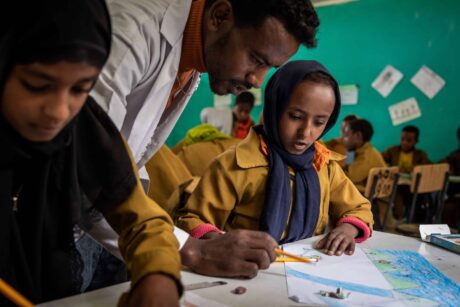Conflict, drought and the pandemic have taken their toll on Ethiopia’s school-aged children. The USAID-supported READ II has pivoted multiple times to support quality education efforts in key parts of the country.
Originally designed as an early grade reading program, READ II sought to improve the reading proficiency of 15 million children in seven regions of Ethiopia (Addis Ababa, Amhara, Oromia, Somali, Sidama, SNNP and Tigray) in English and seven mother-tongue languages. During its first three years, READ II supported 3,000 schools in more than 70 woredas. Through a variety of proven techniques—including training teachers, school administrators, volunteer community literacy leaders, girls club coordinators and establishing reading camps—the program benefited 3,077,232 primary school students.
Then the pandemic struck, which pushed the out-of-school population from 13 percent in 2020 to 22 percent in 2021. READ II pivoted to address the crisis by developing in-person interventions and virtual technology responses – from distance learning through radio and TV and virtual training for teachers to establishing an IVR hotline to engage teachers, parents and school directors.
The outbreak of the Northern Ethiopia Conflict in November 2020 further exacerbated the learning crisis. More than 3.4 million students (1.7 million girls) are out of school in northern Ethiopia, the United Nations reported in February 2023, of which Tigray accounts for 2.3 million (1.8 million girls). More than 9,380 schools were damaged or destroyed.
Renamed as the READ II Education Recovery Activity, it supports more than half a million children in 1,156 conflict-affected primary schools in 90 districts. The activity provides teaching, learning and recreational materials to students, as well as basic school supplies, furniture and tents for schools and temporary learning centers to resume teaching and learning. READ II also supports regional and local back-to-learning campaigns through targeted campaigns, posters, radio public service announcements and mobile hotline push messages.
Program Achievements
READ II has made a tangible impact by directly benefiting 3,077,232 primary school students across Ethiopia. This achievement stems from the implementation of proven techniques, including comprehensive teacher training and the establishment of reading camps. These efforts have significantly enhanced the reading proficiency and educational experience of students, contributing to a brighter future for them and their communities.
The READ II program has provided critical support to over half a million children enrolled in 1,156 primary schools affected by conflict in Ethiopia. By supplying essential teaching materials, such as books and educational resources, READ II ensures that these children can continue their education despite the challenges posed by conflict. This support is vital for maintaining educational continuity and preventing further disruptions to their learning journey.
In response to the urgent needs of conflict-affected schools, READ II has delivered comprehensive support, including teaching, learning, and recreational materials. Additionally, the program has supplied basic school supplies, furniture, and tents to ensure that educational activities can continue in a conducive environment. These provisions not only facilitate teaching and learning but also contribute to the overall well-being and safety of students and teachers amidst challenging circumstances.
Recognizing the importance of psychological well-being in the learning process, READ II has conducted extensive training sessions for teachers and community leaders. These sessions cover essential topics such as psychological first aid, psychological support, and social-emotional learning. By equipping educators and community leaders with these skills, the program aims to create a supportive environment that fosters resilience and emotional growth among students, enhancing their overall educational experience.
Child protection is a core priority of the READ II program, especially in contexts affected by conflict and crisis. Through systematic integration, the program conducts screening for vulnerable children, provides in-school psychological support services, and establishes robust referral systems. These efforts ensure that children receive the protection and support they need to thrive academically and emotionally, safeguarding their well-being amidst challenging circumstances.



